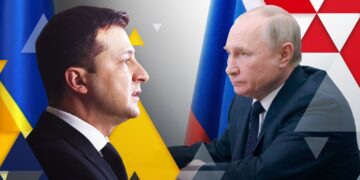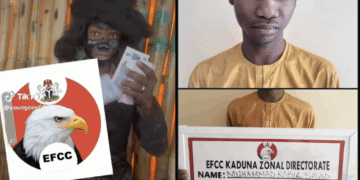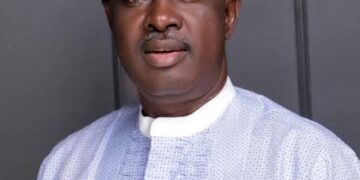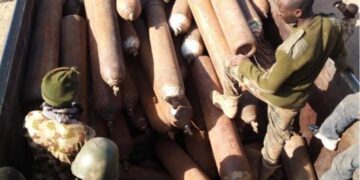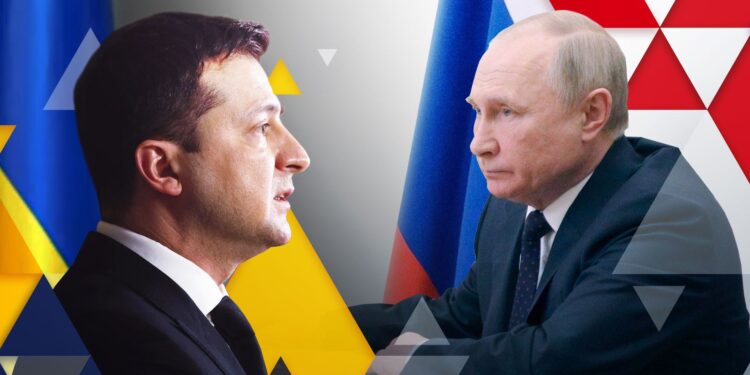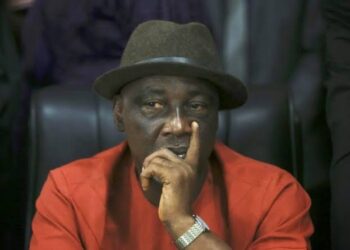Officials from Ukraine and Russia are in Instanbul (formerly Constantinople) for exploratory talks on ending their three year old war.
The talks, the first between both countries for three years, aim to explore slight opportunities in a frenzy of recent diplomatic engagements, led by America, to end the war which has cost both countries dear.
They are holding at the middle level rung of the diplomatic ladder, following the reluctance of Russian leader, Vladimir Viktor Putin, to personally attend the talks holding in Turkiye, as demanded by the President of Ukraine, Wladimyr Zelensky.
The profile of the delegates of Ukraine to the meeting had yet to be unfolded at press time, but Russia is being represented by several hardliners, including a close aide to Putin, a military intelligence head and other hawks in Moscow.
The talks come after the European Union (EU), a main backer of Ukraine in the conflict, threatened, like America, to enhance sanctions against Russia if it failed to begin talks to end the deadly war.
Russia has largely undermined the regime of crippling sanctions against it by EU and NATO member states, and America, by direct engagement with China, North Korea, Iran and several nations in the Southern hemisphere.
The EU had also tacitly insisted that Putin personally attend the talks at which American President, Donald Trump, said he would make a stop over, if leaders of the two countries were participating.
Putin had not publicly spoken on his expected absence from the talks, though his Ukrainian counterpart, Zelensky, was also likely to be absent, even though he is due in the same host country at the time of the meeting.
Zelensky us attending a meeting of NATO officials in Anatylia, Turkiye.
It remained unclear,at press time, how much latitude both delegations had going into the talks, but American leader, on his current tour of Gulf Arab states, had hinted at the prospect of encouraging results from the talks.
Trump had long said that he would end the war, without giving out much on the terms on which the ceasefire talks would benchmark.
According to Trump, the war, which military experts classify as the single biggest military conflict in Europe since the Second World War, causes an estimated 5,000 weekly human casualties, aside from destruction to other vital assets of both countries.
The war began after Russia invaded Ukraine in 2022, citing hostile security actions, including the itch to join the Western military alliance of NATO( North Atlantic Treaty Organization), against the spirit of the mutual accord between the Easter and the West that ended in the collapse and dismantling of the Union of Soviet Socialist Republics (USSR) of which modern Russia is its spatial, political and diplomatic inheritor/ successor.
Both Russia and Ukraine, just like several other countries, were part of the defunct USSR, but tension had built between them after NATO allegedly chaperoned Ukraine to oust its pro- Russian government, replace it with pro- West Zelensky and accelerated the quest to join NATO, much to the chagrin of Russia.
Moscow is equalled peeved that the West broke its vow not to expand NATO near its borders, and to dismantle NATO, in view of the dismantling of the Warsaw Pact, which was led by the USSR and was the military and diplomatic platform of the socialist/ communist bloc, and the Eastern rival of its Western counterpart, NATO .
Western failures to address Russia ‘ s security concern as agreed between the NATO- led West and the Warsaw Pact, led by the USSR, then under Mikhail Gorbachev, led to the invasion of Ukraine and the subsequent war that has led to high casualties on both sides, and the strong Western backing for Ukraine.
Russia has the support of North Korea and Iran.
Efforts by the Security Council of the United Nations to resolve the war had been scuttled by Russia, which, unlike Ukraine, holds the prestigious Veto power, alongside China, Britain, France and America.



